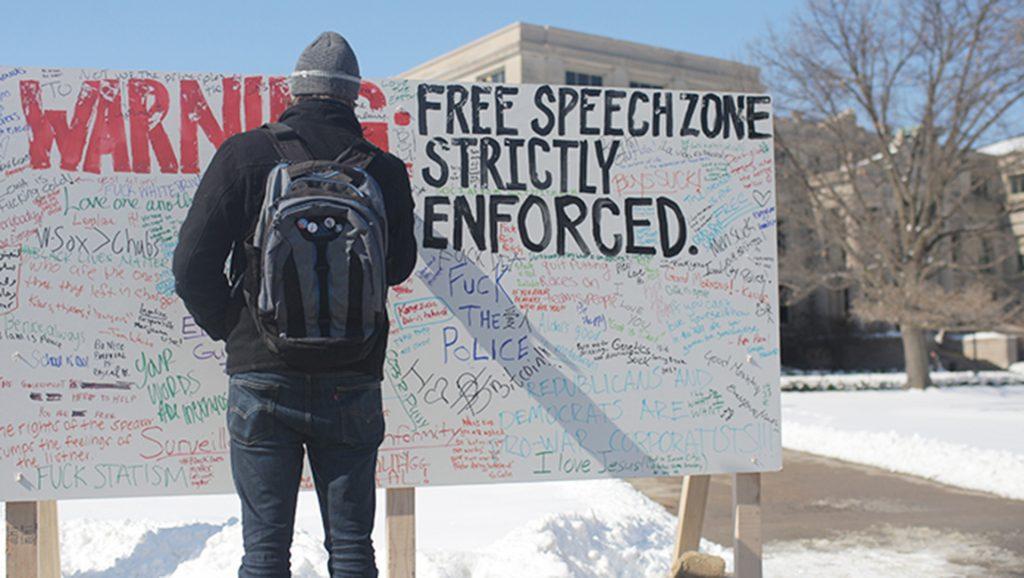Free speech on college campuses has become a hot-button issue in the last few years. Conservative columnists have echoed the words of Attorney General Jeff Sessions, who declared last year that the American ideal was “under attack” in schools. Recently, the Iowa GOP even introduced a now-dead bill addressing the issue; Democrats contended that it created “legalized discrimination.”
The concern certainly hasn’t appeared out of nowhere. According to a recently published Gallup Poll, the proportion of students who agree that campus climate prevents some people from saying potentially offensive things increased from 2016 (54 percent) to 2017 (61 percent). The poll also found that students across the political spectrum perceived conservatives as less able to freely express their views than other groups.
RELATED: UI maintains support of free speech after Wisconsin protest policy change
As higher education continues to lean left, it’s important for colleges to reflect on why conservatives believe their ideas are stifled on campus and to work to create more open campus climates. But the idea that thin-skinned millennials and safe spaces are to blame for a campus “attack” on free speech is overblown — and ignores the complexity of the issue.
The truth is, most of today’s college students believe protecting free-speech rights and inclusion to be very or extremely important to democracy, according to the Gallup Poll — although they do slightly value inclusion more, 53 percent to 46 percent.
And while vitriolic backlash against campus speakers has caused alarm in recent years (from milder personalities such as Ben Shapiro to white nationalists such as Richard Spencer), only 28 percent of students favor colleges canceling speaker invitations because of opposition. Also, what about those dreaded snowflake safe spaces? Well, 70 percent of Republicans surveyed supported having them on campus. Finally, most students did favor campus policies that may restrict expression, including banning slurs (73 percent) and establishing “free-speech zones” (83 percent).
RELATED: Letter to the editor: UI does not suppress free speech
Personally, as a free-speech absolutist — especially at public universities — I find that last statistic somewhat concerning. But I think it also reflects this generation’s desire to be more respectful of people different from them — not because it’s the “politically correct” thing to do but because it’s the human thing to do. Understanding and valuing the historic power of derogatory language doesn’t make this generation weak. My peers across the political spectrum obviously want their classmates to feel safe in their learning environment, and I think that’s a good thing.
College students haven’t simply thrown the value of free speech out the window, as the “attack” narrative would have you believe. Even as they struggle between the ideal of free speech (which does protect hate speech) and inclusiveness, 70 percent prefer an open learning environment that permits offensive speech over a positive one that limits it. As this generation strives for what some decry as political correctness, they definitely haven’t spiraled colleges into a free-speech crisis.
First and foremost, colleges are institutions of learning. Valuing the free flow of ideas is the best way for that learning to be facilitated. And contrary to dog-whistle claims, American college students haven’t lost sight of that.









